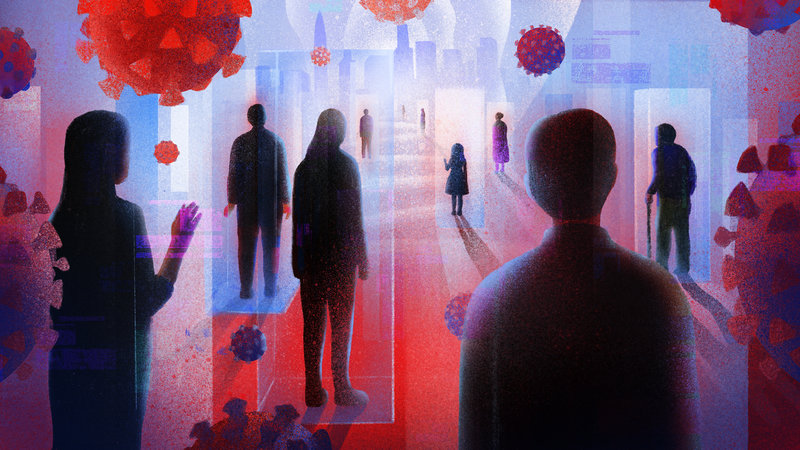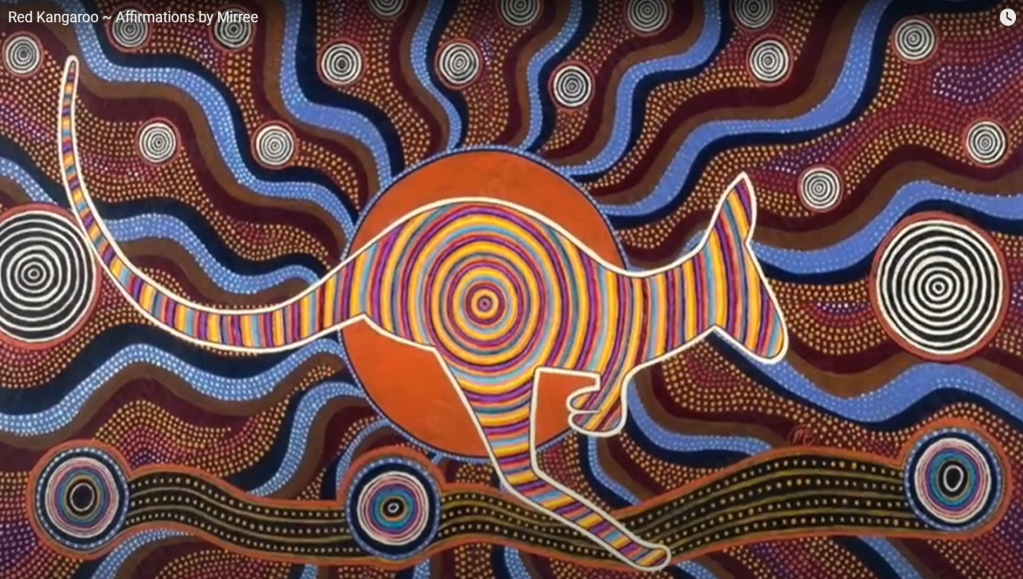I am peering through my window into the future, through a portal to unpredictable days, where two worlds touch – the pre COVID-19 past and a future I cannot see clearly. ‘For now, we see through a glass, darkly’
My vision is clouded. I can peer as intently as I like and wish for gypsy confidence that the portal will reveal what I really want. The poet Rumi said ‘You must ask for what you really want’. What do I really want? And why is it so difficult to diagnose and act on what is happening in the world at present?

I found answers to the last question in the words of Jamie Wheal, co-author of New York Times best seller titled Stealing Fire: How Silicon Valley, Navy SEALs and Maverick Scientists are Revolutionizing the Way We Live and Work’. As well as being an expert in peak performance and flow state, Jamie Wheal has studied historical anthropology specializing in utopian social movements.
In an interview titled Sense Making in Chaos, he offered three explanations for why it is difficult for us to find clarity when looking into the future. He was interviewed in July 2019 in the context of growing disenchantment with: governments, financial systems, inaction on climate change, collapse of the promises of globalism, social injustices, the whole post truth era where one questions who and what is trustable. How much more complicated is the world situation now with the COVID-19 pandemic!
Why it is so difficult to see into the future?
Jamie Wheal suggests that the first reason we find it so difficult to look into the future is because of the complexity of the situation demands complex cognitive capability in our minds. The mind has to be aware of cognitive biases and hold conflicting ideas to be able to grasp the complexity of the issues. Approximately 5% – 10% of the population have this capacity. They can provide scaffolding for others to understand.
The second reason is our own cognitive bias. What version of reality do we take for granted? What are our sacred cows? What stories do we tell ourselves to make meaning of our world? What is our paradigm? Do we believe in a free market? Do we think European countries should retain their cultural identity? Do we think that the universe is unfolding as it should? Do we think some supernatural power is going to save us?
Such concepts may be deeply wired. We may be unwilling or unable to change them. We need to be aware of these biases because the future may ask us to hold all sorts of highly de-stabilising, unsettling and contradictory possibilities, all at the same time. If we can’t do this, our meaning making is skewed.
The third reason flows from the first two. Jamie Wheal describes it as our ability to digest grief. If our version of reality is shaken to its very foundations, we need to find a way to handle the death of the sacred cows. If all our future happy plans, the way we thought the world worked, if all this unravels, of course there is grief. Deep grief.
We can be crushed but he says we MUST find a way to reach the place where to quote poet Wendell Berry we can ‘be joyful though you have considered all the facts.’

Grief
The world is awash in grief at present. So many unexpected and premature deaths; so many jobs lost; so many relationships changed; so much loss of creative outlets and platforms in arts and entertainment; so much violence towards women in domestic crises; so much trauma piled on top of whatever was previously happening (e.g. in Australia, the slow recovery from devasting summer bushfires).
It’s easy to feel overwhelmed. How can one be joyful, despite knowing all the facts?
The gypsy and the government
If I asked a gypsy to read the future, s/he/they would take my silver. Our governments take our silver and offer their readings. I feel deep sadness because I fear their prescriptions are following the same old money driven mantras, the same old prosperity pathos, the same old neoliberal lines.
My email feed is filling up again with subjects like: online action to protest against the huge Adani coalmine; supporting school students climate action; petitioning politicians to put #PeopleBeforeProfits; and the blog lamenting that the proposed ‘snapback’ of the Jobseeker payment will push thousands more ageing women into poverty in Australia.
Re-starting the economy seems to me like stepping back into the arena and watching out again for: the next threat to the environment, to other species, to social justice, to human rights; taking whatever small action I can. The pandemic gave some people breathing space to think outside this treadmill of threat/response and to imagine a saner, more just world.
A different world
I’m a dreamer so I’m longing for a different world. One where my young friend in the Philippines earns more than $5 a day working as a sales assistant in a phone shop and can easily save the few hundred dollars she needs to take her teacher registration examination;
Where a universal living wage affords dignity to the needy;
Where local communities nurture industry, food production, leisure, sports and entertainment;
Where actors, writers, musicians, artists, singers (and creatives) are valued for their insights, their inspiration and access to inner wisdom.
Where education is valued, accessible to all
Where compassion moves government policy towards dignified access to resources for the unemployed, the unwell, the disabled and any who for whatever reason cannot participate in the economy.
Where the environment and all species have a voice.
That will take a miracle!

Some thought it a miracle when the final span of the replacement Genoa bridge dropped into place at the end of April 2020. The old bridge tragically collapsed in August 2018. In nine months, including through the pandemic, the new bridge was almost completed. When asked about this amazing feat, the chief construction executive said ‘They say it’s a miracle – it’s not a miracle, it’s the work of human beings, men and women, using their hands.’
People of all persuasions using their hands, hearts and minds with a unified purpose can create miracles. This is how we come to the joy, though we have all the facts.
I look through the portal, my window in time and I see the places and events where the world as I would like it is beginning to happen. I celebrate the countries moving quickly to renewable energy. I note tentative moves towards a universal basic income. One report said: Pope Francis, Facebook founder Mark Zuckerberg and European Central Bank vice president Luis Guindos all agree: it is time to think about a universal basic income in the face of the unprecedented economic abyss caused by the coronavirus health crisis.
In Australia and across the world there are many community-based initiatives that have been quietly gaining momentum for decades. For in-depth information on this check out Local Futures. Founder of this non-profit organisation, Helena Norberg-Hodge has advocated for years for localisation as a response to the global corporate economy. Localisation can reduce distances between the product and the consumer, especially for basic needs of food, clothing, housing.
Farmers markets are a template for local economies. According to Norberg-Hodge, farmers get 10% of the product price sold in a supermarket; 40-50% through a coop and almost 100% at a farmers’ market. Ideally this should mean better quality food, less waste (because it’s not the right shape or size), less transport, less refrigeration, less preservatives, less advertising; at a better price for the consumer.
Less tangible social benefits ensue. Research has shown, people have 10 times more conversations at farmers markets, than when shopping at the supermarket!
Successful intentional communities work best when participants adopt ethical principles. How amazing would it be if our governments operated ethical principles perhaps similar to the Universal Declaration of Human Rights. If government words and actions reflected such ethical principles, perhaps their trust index would rise.
At community level, one can find effective life-affirming organisations. I am a member of a world-wide liberal religious community that subscribes to similar principles. It has been my privilege to learn ways to integrate ethical concepts in some small way into my world paradigm and to have conversations that hopefully reflect some of the ideals.
Choosing joy
Choosing joy is ultimately a personal decision. Like the poet Maya Angelou, I realise joy is essential to life in the future because it nurtures resilience. She wrote:
We need joy as we need air.
We need love as we need water.
We need each other as we need the earth we share.
Remembering to choose whatever is needed to bring joy and care to ourselves in difficult and painful days is essential – meditation, poetry, dancing, art, singing, writing, exploring nature, walking, whatever!

The Future, Australian style
Our only option is to be like the kangaroo and go forward into the unpredictable days of our future, with eyes firmly fixed on joyous glimpses of the kind of world we want. Who knew that the kangaroo is the only animal in the world that cannot move backwards? Who knew too, that the emu is the only bird that cannot walk backwards? Perhaps that is why they both appear on Australia’s coat of arms!
The Real View from my Window

This is what the camera sees from my window – varied shades of tropical green and that amazing blue sky synonymous with Queensland winters. Yet, when I look out my window, what dominates the scene for me is a dead strangler fig tree. You can see the scraggly pale branches if you look closely.
I remember and feel sad that the tree has died because a root was cut. I remember that the tree’s roots were constantly encroaching on our grey water treatment tank. This was a problem because the we humans chose to put an attractive source of moisture close to where the strangler fig began life wrapped around a eucalyptus tree. I remember we are all part of the interconnected web of life. Every action has a consequence.
I give thanks for the tree that added such verdant green while it was alive. I see the lifegiving green in all the other trees. I notice the beauty and the joy despite the facts.
Love your words “People of all persuasions using their hands, hearts and minds with a unified purpose can create miracles.” and the thought of living in the different world you described.
LikeLike
Thanks so much, Amanda. I guess we are the imaginers. And yet it seems only sane and just to want a world where #peoplebeforeprofits.
LikeLike
Renee,
Thank you for this thoughtful article. You speak for many of us – I like to think you speak for the majority. I didn’t know our national emblems are unable to walk backward – that’s so interesting and symbolic. I absolutely agree life works out better if we feel for the joy despite the facts. It’s a skill worth learning and trusting.
Wendy
LikeLike
Thank you Wendy. Let’s just hope and act where we can so that the majority voice is heard. I know, so fascinating about the kangaroo and emu! Learn something new every day!
LikeLike